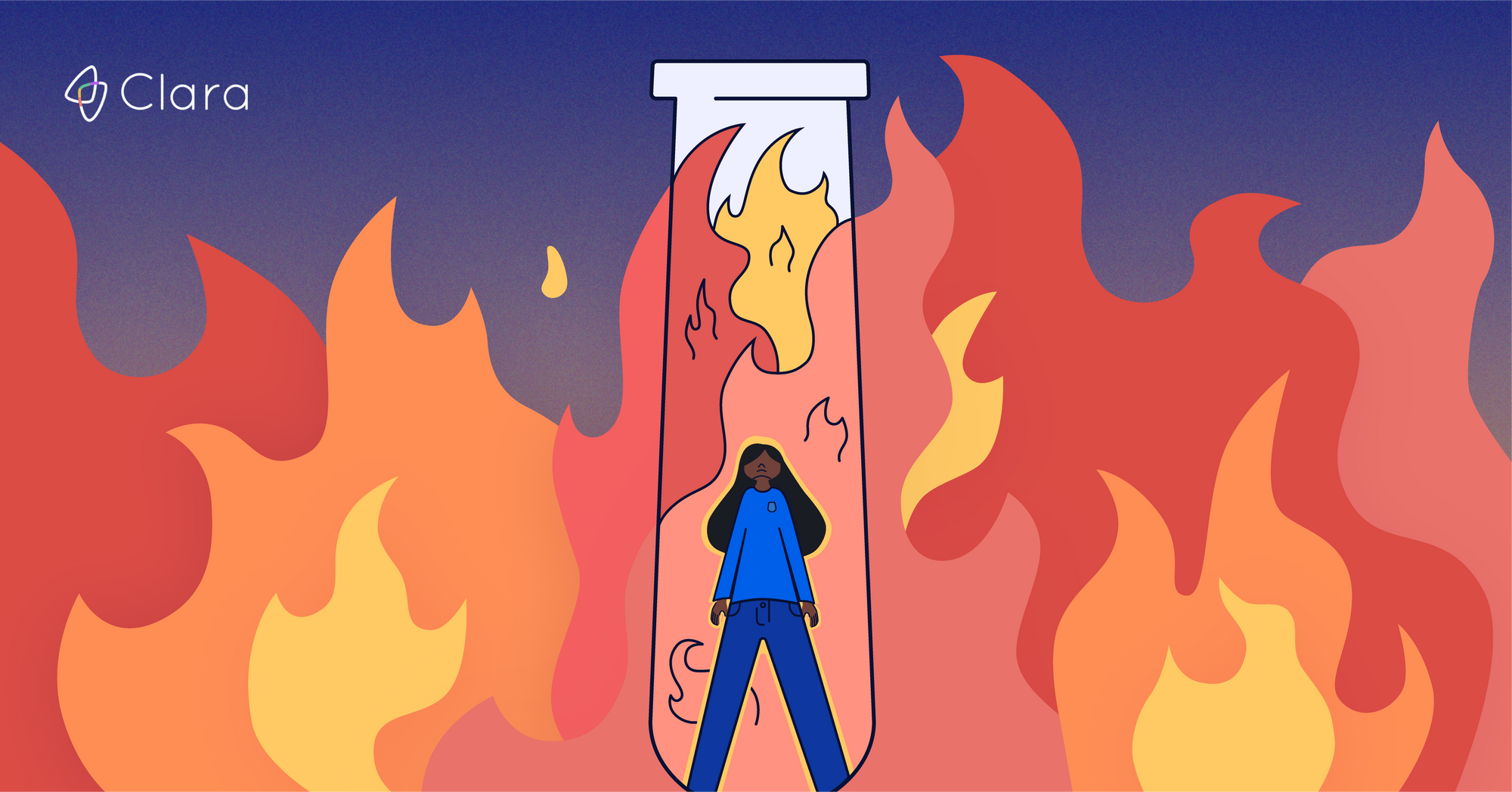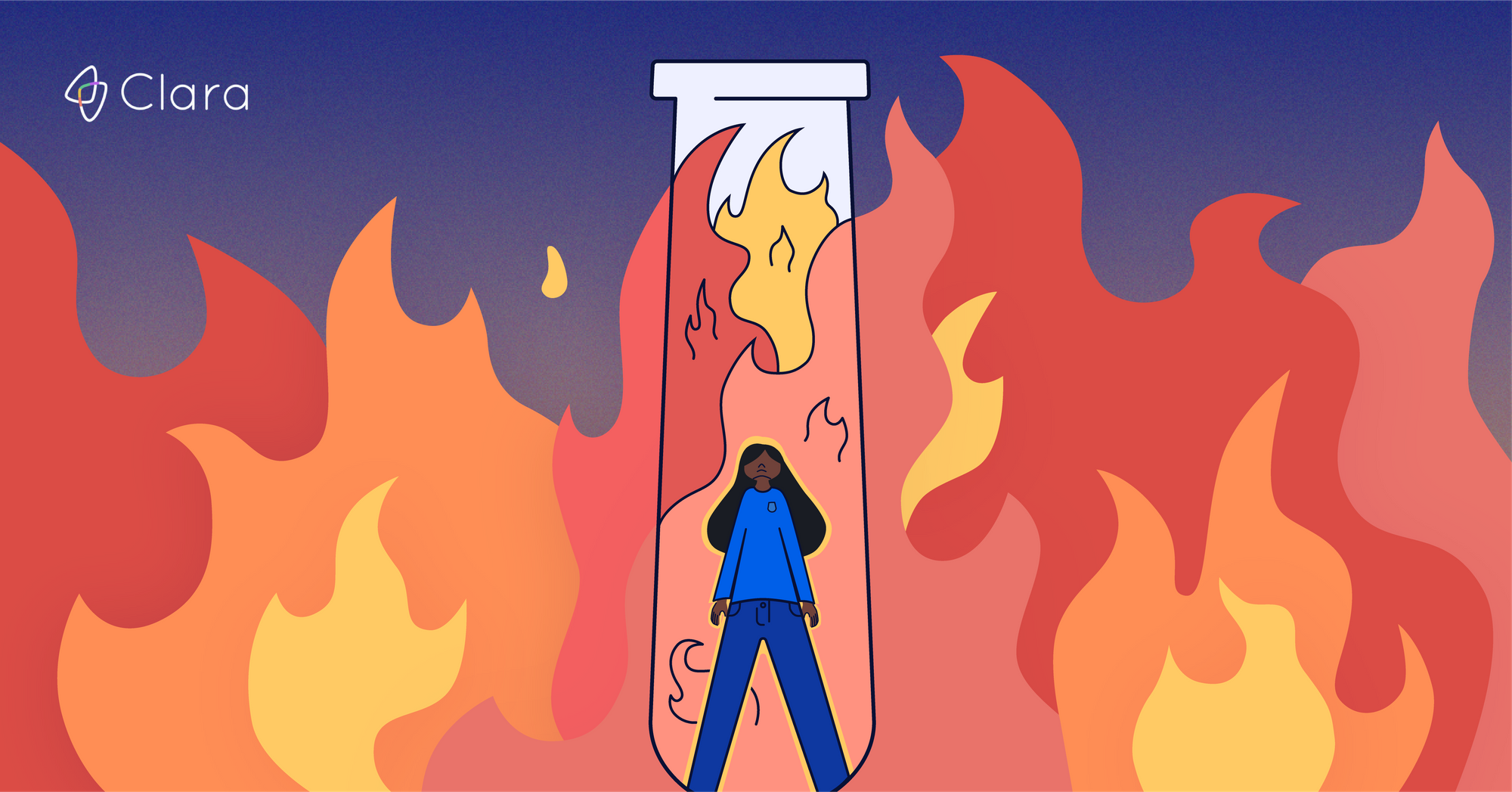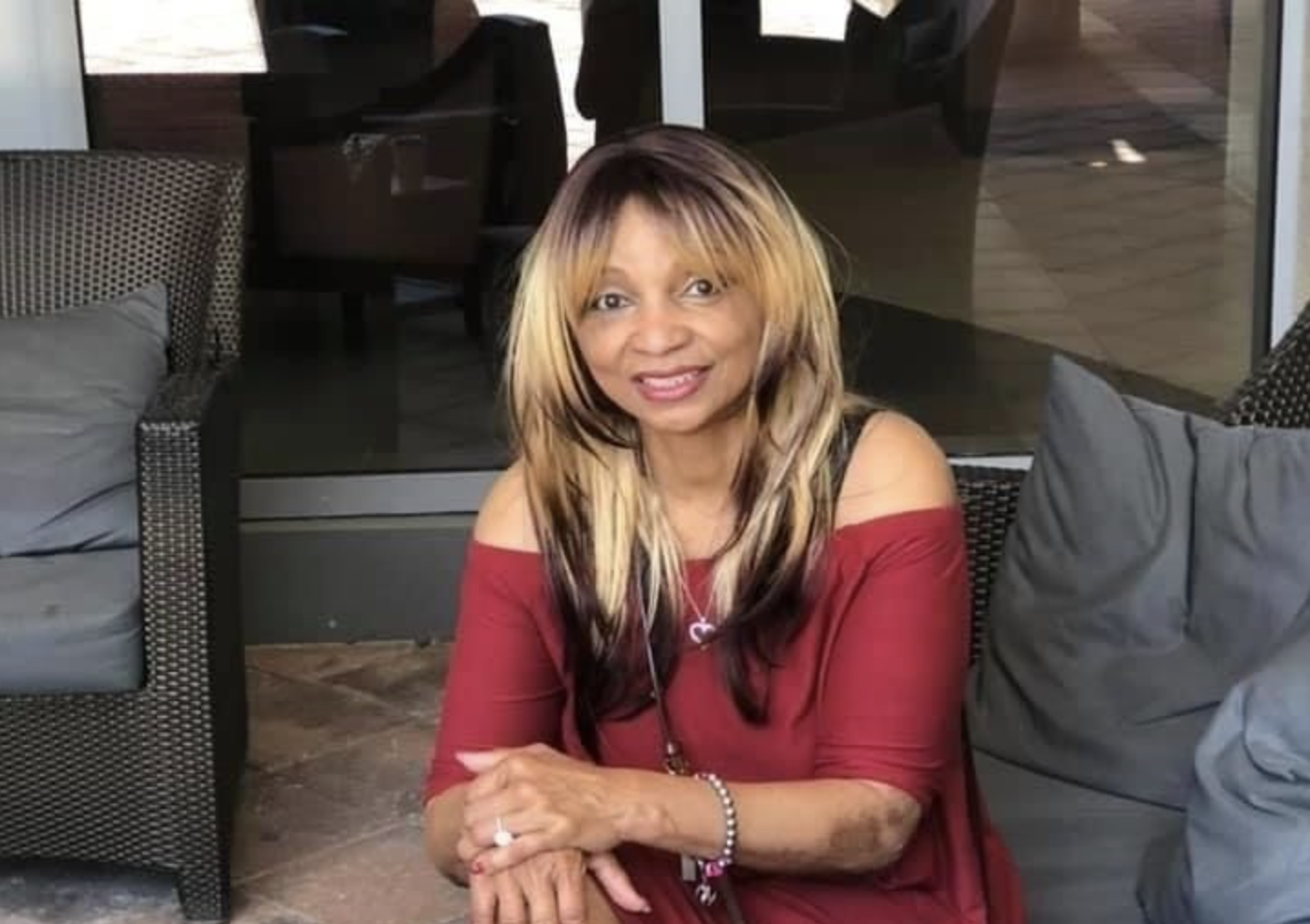Hello and welcome to the Patients Have Power Podcast, a space where we're keeping it real about what it means to live life with chronic illness, and talk to incredible advocates who are redefining what it means to be a patient! Our latest Patients Have Power episode is called "Kelby and the worst roommate ever" (You can subscribe to the podcast at Apple Podcasts, or listen to it with the media player above).
I'm your host, Lilly Stairs, autoimmune patient and head of patient advocacy at Clara Health.
Today's guest is Kelby Peachy. Kelby is an advocate, living with ankylosing spondylitis and Hashimoto's. She's currently the event chair for the National Walk to Cure Arthritis, and an online patient advocate. In this episode, Kelby and I dig into managing your career and chronic illness, and how having a chronic illness is like living with a roommate.
Below is a transcript of the episode for your reading pleasure!
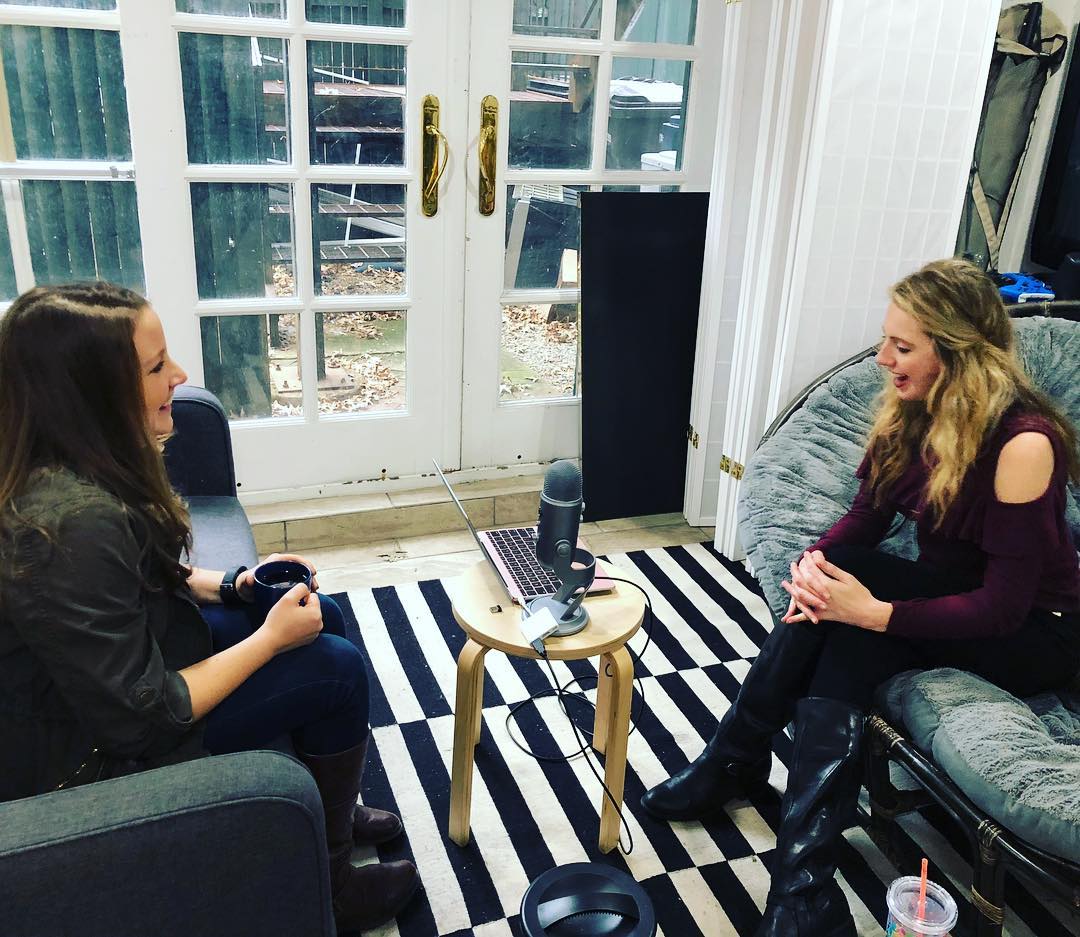
Lilly Stairs: Hi everyone! Today we have Kelby Peachy with us today, and I will say, before we started, I was like, oh, I have to double check.
Is her last name actually Peachy? Because many of us know her online as having the little peach in her Twitter handle and Instagram, which is adorable, but I was like, oh, is that a name that she made up, or is it her actual name?
And it is her actual name.
So, we're so excited to have Kelby here with us today. She is one of our Breakthrough Crew ambassadors. She's also a big advocate with the Arthritis Foundation, and the Arthritis National Research Foundation, and does a lot of work with them, so she's been a phenomenal advocate for patients really across the country.
Would you like to share a bit about yourself?
Kelby Peachy: So, I've had ankylosing spondylitis since 2001, official diagnosis. Of course, I suffered with it a couple of years before.
Lilly Stairs: Of course, yeah. But nobody figures it out.
Kelby Peachy: Ever. Yeah. And then as of February of this year, well 2017, I was diagnosed with thyroiditis, which is also formerly known as Hashimoto's disease. I know a lot of the medical community does not like to use that term anymore, so I'm trying to be right.
Lilly Stairs: Now why is that? I didn't know that.
Kelby Peachy: I have no idea.
Lilly Stairs: Oh, okay. We'll Google it later.
Kelby Peachy: But as I like to tell people, I have the funny named diseases. The ones you can't pronounce, and the ones you can't spell.
Lilly Stairs: So a couple of different autoimmune diagnoses - and how has this impacted your life?
Kelby Peachy: Drastically, actually. But it's also been a very interesting balance because I've been diagnosed with it more than half of my life. So it's almost at that tipping point where I'm not quite sure ... it's hard to remember what life was like without it, but I've also tried to put the positive spin on it.
I guess marrying a PT you quickly learn how to spin and balance and find the positive side of things, and I think that's a reason why I started a blog several years ago, and just have actually wanted to get involved in the online community and spread awareness.
You may be diagnosed with a disease, but it's up to you on how you want to take it, and for me it was always trying to find the peachy side of the pains.

Lilly Stairs: I love that, that's so cute! That's amazing, and your blog is called Peachy Pains?
Kelby Peachy: Yup!
Lilly Stairs: Yeah, okay. Amazing blog, I recommend checking it out. Gotta give you a shameless plug there.
Kelby Peachy: Great content. Hasn't been updated in a long time, so enjoy!
Lilly Stairs: Well you know what, it's interesting because I actually remember when I was first diagnosed, which was back in 2011, I definitely came across your blog.
And while maybe it hadn't been updated, or now it hasn't been updated in a while, it's still all relevant content, and something that people can go back to and use when they've been first diagnosed, and they're kind of navigating their journey. So I think it's great when, even when you're not updating, that you still have that information out there, right?
Kelby Peachy: And I've actually used it myself, gone back and found out "oh, this is what was happening at this time", or have sent my doctor over to it, especially when I was dealing with some hip pain and tears and things like that.
Especially since I moved from Colorado over to Massachusetts and changed doctors of showing them, no, I've been diagnosed with this before, I've had a tear before, these are the things that we did, and here's my blog, and I recorded all of it, and this kind of stuff, so it was kind of like a nice little diary.
Lilly Stairs: Yeah! Very good, very good!
Kelby Peachy: Health diary.
Lilly Stairs: I feel the same way. I've actually gone back to look through mine on occasion and be like, oh yeah, I forgot that happened, and now it's happening again, so now I know what I need to do.

Lilly Stairs: So tell me a little bit about one of your breakthrough, or most difficult moments that you have experienced as a chronic illness patient, and how you overcame it.
Kelby Peachy: The one that comes to mind is trying to maintain a job while having a chronic disease, and that was between interviewing with companies and how you find that fine line of showing your true side: "Hey, I've got a disease and it's a major part of my life - I am involved heavily in promoting it and sharing my story about it", but also not consuming your entire life.
That it's everything, that it's the end-all be-all, and being okay with it.
So for a long time, when I first got on, I didn't share my name at all. It was just Peachy Pains - that was my name, Peachy, I didn't share my first name at all because you Google me, I am the only one.
In reality, it's the more I've gotten involved with the community, and the more I've really have started to advocate for it, I've realized that I'm okay with it. It is part of me, and I really don't want to work for an employer who doesn't understand that or respect it or appreciate it in any regard.
So that's probably one of my biggest breakthrough moments is coming to grips and reality of it's okay to be that face for yourself.
Lilly Stairs: So beautifully stated, and I think something that I know, just being online in the patient communities, it's certainly something that people are talking about a lot.
Because it is this delicate balance - and when do you disclose this to your employer? Should you disclose it during an interview? Do you disclose it after?
Do you have an opinion on that, on what you think is the best practice?
Kelby Peachy: For me, I've never personally actually have disclosed it in an interview or up front. But I do have the work, as a patient, on my resume, and on my LinkedIn profile, and I proudly state it.
So if they have questions about it, then I'm more than happy to help them, and show the light at the end of the tunnel. And then also let them know, at least for me personally, it's well managed, and have that honest conversation with them. I find out from them whether or not they have flex schedules, how they feel about patients who have disabilities, and those types of things.
Like I said, if they're not honest or open in that, do I really want to work for that particular employer? I strongly feel it's up to you, as the patient, to make that decision of what you are willing to disclose.

Kelby Peachy: For me, I've done it bit by bit. I let my employer know that I'm going off to an appointment, and I make sure to find out how their policy works.
- Do I need to take time off in order to go to my appointment?
- Do they have flex time, where I can make up the time later?
Of course it depends on what type of job you have, and what type of employer, and all those things. But as the relationship has grown with my boss and my employer, they now support me in my work. My boss actually lets me stay at home when I'm having a really bad day, or weather permits, (if it's really bad, she'll let our entire department stay behind).
So it's just having, I think, an honest conversation, but not bombarding them with everything at the same time. 'Cause it's like they're being newly diagnosed to this disease as well, if you really think about.
Lilly Stairs: Yeah, but that's a great point. Certainly, when you first hear the words, it can be very intimidating and scary. And especially for an employer where you have all of these things that start running through your head, I'm sure.
And that happens across the board with anyone that you're going to disclose your illness to. Somebody you're dating, a friend, family - I mean it's a big moment. It sounds like you've really mastered it in your career space, which is awesome, and it's empowering to hear.
And it's reassuring to hear that there are employers out there who are willing to be flexible, and are willing to support their employees who are living with a chronic illness.
Kelby Peachy: And I also think it's up to the employee to demand more out of it. I think the employer is willing to give as much as what you're willing to ask.
I saw a great 60 Minutes interview with Sheryl Sandberg, she's the one who did the Lean In book. Very well known, and I actually read her book, and her example was that she was pregnant, at the time, and she was having to walk all the way from one end of the parking lot, to get there, and she actually went into HR and said, "Hey, I'm pregnant, I'm having a really hard time walking. Can I have a space out front?"
And within the next week, she had a space.

Lilly Stairs: I love that example, yes.
Kelby Peachy: So if you're not willing to ask, or push, or just know your limitations of what's comfortable for you, but never be afraid to ask for what's going to make you the most successful.
And I think it, for me, I will do anything I can to help make my boss happy, and my coworkers extremely excited to work with me, and my clients really happy to turn in their assignments in on time, because I'm a project manager. And even my employer, I'm always trying to give a little bit more than what they're giving me, and it's a great understanding and relationship.
And so I think if you are able to take those steps forward, you understand it's not one giant chunk at a time, it's one little bit at a time. I've been with my current employer for almost... five years soon, and it's taken a lot.
It takes a little step at a time.
Lilly Stairs: And how has that translated to your other relationships? So family, friends, partner, how has all of this gone, over the past couple years? And how long have you been living with ankylosing spondylitis?
Kelby Peachy: Since 2001, yeah.
Lilly Stairs: Wow, so it's been a long time.
Kelby Peachy: 16 years.
Lilly Stairs: So you have a lot of experience under your belt?
Kelby Peachy: Yeah. It's a growing transition. I like to think of it as a roommate. Some days you get along, some days you just really want to strangle that person.
'Cause they're not putting away the dishes, and they're throwing a hissy fit, and they've left their wet laundry in the washer, and you just want to strangle them.

Kelby Peachy: And other times, you go out to movies, and you have a dinner date, and you just had friends-giving, and just all of these amazing things.
So that's the way I look at having a relationship with my arthritis, and I think once I figured that out I was able to describe it to friends and family members and saying, "Hey, I have this roommate that likes to throw tantrums every now and then. I can't control it. I do my best with what I can, but just understand that this is what I'm able to give, at this time.
And some days I will do my absolute best to try and not cancel because it hurts me when I have to cancel, it really plays in my emotional toll, because I know it's a balance - not only between a physical aspect, but emotional and mental health, as well.
And me seeing you, and me going out and doing things, it may take a physical toll on me, but I balance it out with, "Oh, it's giving me more emotional support at this time." Is it worth that extra ability to be able to do so? Can I give up that extra energy in order to fulfill this need?"
Kelby Peachy: And I think having, again, that honest, open conversation with it, and I think it's also, it sometimes can come as a shock of, "Oh, Kelby, it's so well managed, you're doing great! I would have never guessed," and I have learned to say, "Thank you."
I'll take that as a compliment, I appreciate that, that I come off as normal and happy and healthy, and well managed, and balanced, and stuff, because I work really hard at maintaining that, and keeping it at a stable pace.
Lilly Stairs: Sure - and what a phenomenal analogy. I think that's really great. I think I want to start using that, and I bet you a lot of other people who listen to this are too. I haven't heard that one before.
Kelby Peachy: Yeah, I feel like everyone has lived with somebody else, and they know the trials with it, and so I think it can be a little bit more relatable than some other analogies out there, and it kind of gives a new fresh perspective, too.
Lilly Stairs: It does, and I think we need analogies, because, and I've talked about this with a lot of different advocates.
This idea that when somebody talks about how you have a family member or friend who discloses that they have a cancer diagnosis, we see this automatic empathy, because cancer advocates have done such a incredible job raising awareness, and foundations have done an incredible job raising awareness.
And we need to work harder to do that on the autoimmune side, to help people understand when they hear, "Oh, I have arthritis, oh I have Crohn's, oh I have ankylosing spondylitis," that it's really difficult to live with. We want them to understand and have that empathy, and so it's through advocates like yourself.
And I think analogies, just like the one that you said, that is going to get us there.
Kelby Peachy: I think so. I also think it's important to try and stop the comparison between cancer patients and patients who have autoimmune disease as well.
I think a lot of healthy people, or also known as muggles, in my mind-
Lilly Stairs: Yes! Potter-heads, I love it.

Kelby Peachy: That [healthy people] have an automatic association. Oh, well you've been diagnosed with the disease, and therefore it's not as bad as cancer, so therefore you should be fine. Put on your bootstraps, get over it, and be fine with it.
And in reality, it's about showing what you can and can't do, and being able to admit that to yourself. I think letting go of what you could do, and what you couldn't do - and realizing that there may be ways of doing something that you could do, just a little bit differently.
And then, of course, the acceptance. Now I say all of this with the most sincerity, because it's a lesson that I still work on. My husband would know that. Easier said than done, I understand that completely.
Lilly Stairs: It is, and that's a really important point that you bring up, that we need to stop this comparison. Because I'm not surprised about what you said, when you said "Oh, at least it's not cancer."
A lot of people said that to me, when I was diagnosed, and I was like, "Yeah, at least it's not, but also I can't move. I'm paralyzed in my bed, so that's not so peachy either."
Kelby Peachy: And as I tell people, I'm like this is another life sentence for me. I'm in my early 30s. When I was diagnosed, I was in my mid teens.
At the time, in six months, I went from walking and running and jumping to in a wheelchair. And not knowing a single thing of what was gonna happen. And I had college on the horizon, I had prom on the horizon, I had driving on the horizon - I had my whole future ahead of me, and that was it.
And to be diagnosed with something, A) I was a little relieved. Because I finally had a diagnosis, but then B), I had to let go of my old life, and realize:
- Okay, what does this mean?
- How do I manage this?
- How do I do this?
- How do I get my family involved?
- How do I tell my friends?
- How do I tell my teachers?
- How do I go to college?
- How do I go to prom? Is that even a thing?
I don't know, and at the time, I didn't have the internet.
There was nothing out there, and as years went by, I think the reason why I did start my blog, and become more of an online advocate to share those, is because I always thought it would have been useful if I had that opportunity to look it up and see what is it like to be on Remicade. What does your first infusion look like? What should I bring to the hospital with me?
And I've got a couple blog posts about that, but now I'm even getting inquiries of, "Oh my god, Kelby, you've been on Remicade for over 16 years. You started it before it was even FDA approved. How did you do that? How have you been able to manage it? How have you increased the longevity? What are you doing, and how are you doing it and why are you doing it?"
There are so many other drugs out there - but I'm an open book, happy to answer.

Lilly Stairs: And you have been. I think that your story - and I've told you this - is that it's really inspiring. And exciting to hear that you have been on a biologic for 16 years, and still very well maintained, from what you've said and shared.
I think that gives a lot of hope for so many autoimmune patients, because I know that there are many patients who cycle through a bunch of different biologics. They build up the antibodies - but you are a shining example of somebody who can really thrive on a medication for an extended period of time, so we can only hope that that continues for many other patients.
Kelby Peachy: Yeah, and honestly, that's a reason why I continue to fundraise and advocate and share my story is because I want people to see that there are hopes. That I'm still looking for a cure.
That I might have found my drug, but every morning, I wake up, and I count my blessings, because it's still working, and it shouldn't be, honestly, it shouldn't be, and it is. And I'm very, very grateful for it, because I remember what it was like for it not to, and I think I see other patients struggling in that regard, and I just ... the first thing I want is to give them a big old warm hug. A cup of tea, or a coffee, and continue pushing for more.
I want more. I want more drugs, I want more pharmaceutical companies produce more medication. I never want to be in a position where I was when I was put on Remicade, and my doctor letting me know, "This is it. This is the last one. You don't have another one."
Kelby Peachy: And now I'm looking at it and I'm like, there are at least eight more I could try, and that's happened in the last 15 years.
This is incredible. This is amazing, and it's because people, patients, advocates, are asking for more. They want more, they're sharing their story, they're letting people know how important it is that they need something else.
Being not happy, and not in a position where they can live their life, is not an option, and I love saying that.
Lilly Stairs: Wow. What an incredible...I feel like we have to end on that note, because it's so powerful.
Lilly Stairs: I cannot thank you enough for joining us today, and for sharing all of your experiences and expertise and for the work you do as an advocate. Thank you for being here. You are a rockstar, and I am so excited to see what happens next.
Kelby Peachy: Thank you, yay!
Lilly Stairs: Thank you all so much for joining us. We'll see you in two weeks for our next installment. In the meantime, be well, and remember you hold the power.
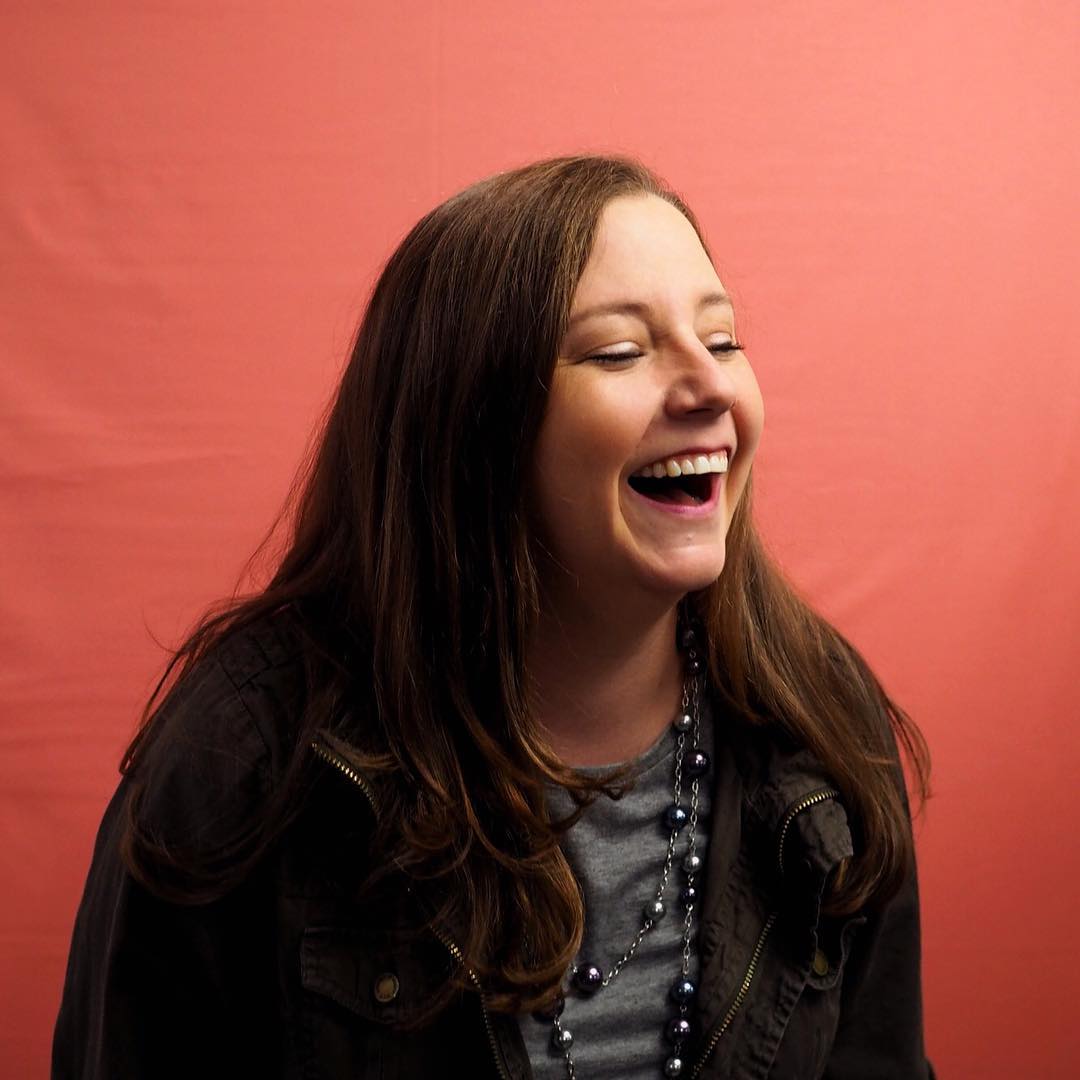
Kelby is an ambitious arthritis advocate and Breakthrough Crew Ambassador. She is a Platinum Ambassador for the Arthritis Foundation and proud #RheumAthlete! Read Kelby's post about her road to diagnosis here, and follow her on Twitter and Instagram!


